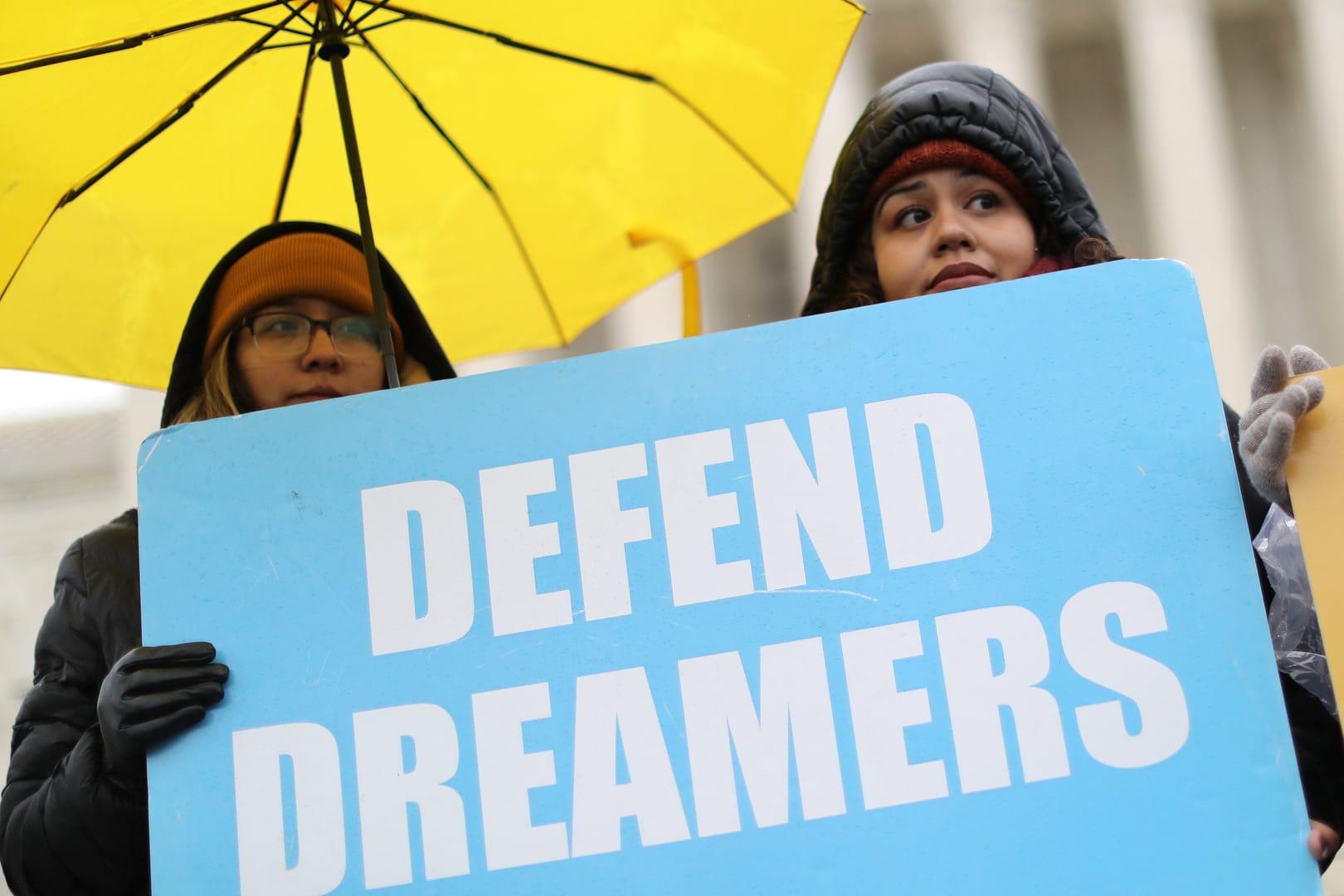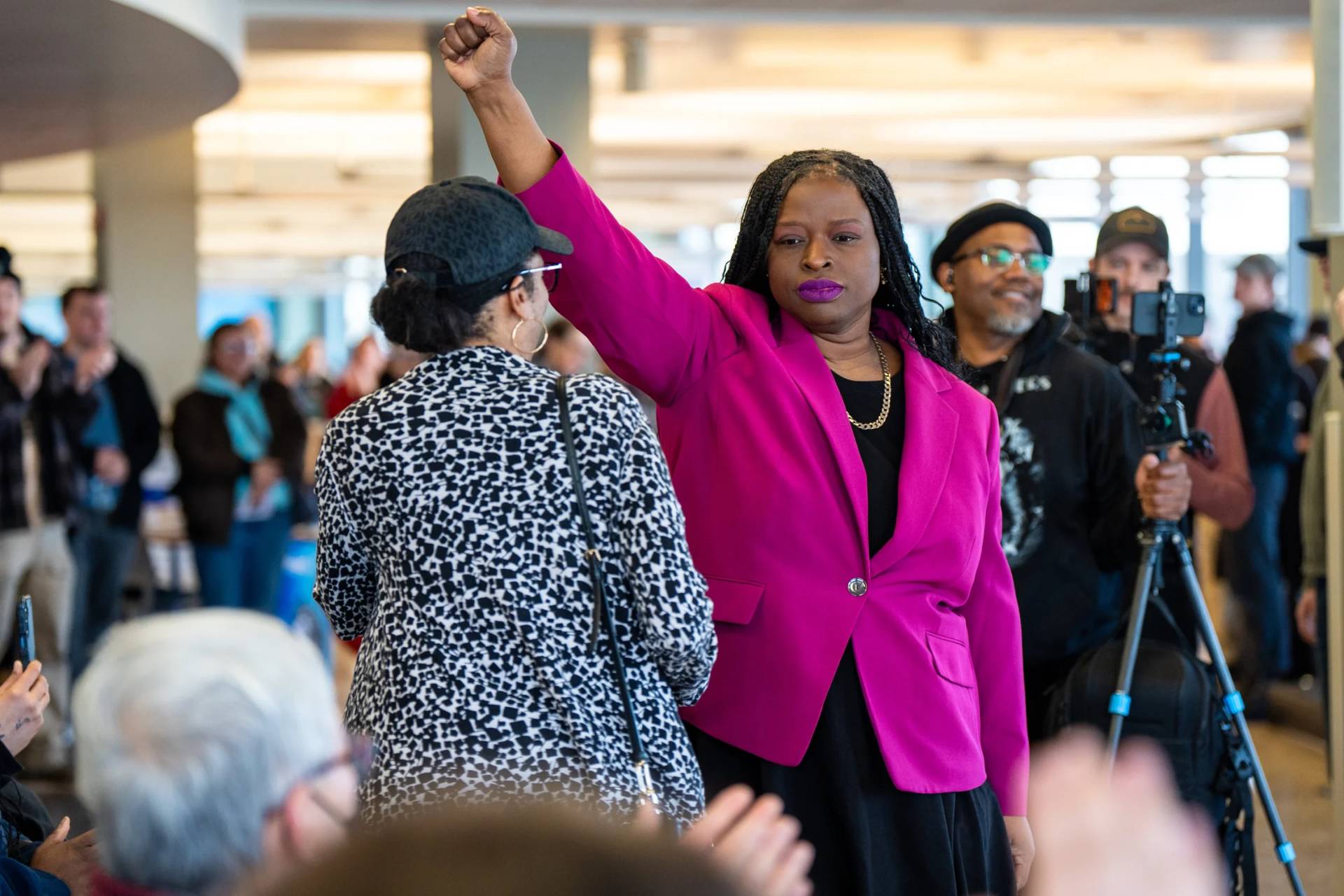NEW YORK – Catholic leaders and organizations that work with Deferred Action for Childhood Arrivals’ (DACA) recipients consider new policy protections announced by the Biden administration a largely inconsequential step forward, noting that real change must come from Congressional action.
The United States Department of Homeland Security (DHS) issued a 453-page final rule late on Aug. 24, that replaces the 2012 memo the program has been governed under for a decade, and simultaneously codifies the program making it more difficult for future administrations to legally challenge.
The rule goes into effect on Oct. 31.
“The new regulation is really just maintaining and preserving what has already been working for the past 10 years,” Ilissa Mira, a staff attorney for the Catholic Legal Immigration Network (CLINIC), told Crux.
“Eventually we hope there will be a system that’s fairer that offers some real and lasting protection, and certainty to young people who were brought here by their parents and didn’t really have a choice in the matter. So hopefully we see that sometime in the future,” Mira said.
The rule has no bearing on an ongoing lawsuit State of Texas v. United States of America, that focuses on the program’s legality. The program has been closed to first time applicants since July 2021, per a ruling by U.S. District Court Judge Andrew Hanen, which the Biden Administration appealed. The 5th Circuit Court of Appeals is now expected to rule on the program’s legality later this year.
DACA is an Obama-era program that allows undocumented immigrants who arrived in the U.S. as children to live and work in the country without fear of deportation.
About 611,000 immigrants were enrolled in the program as of the end of March, about 495,000 of whom came from Mexico, per government data. The next three highest countries are El Salvador, Guatemala, and Honduras.
To qualify for the program someone must have continuously resided in the United States since June 15, 2007, up to the present time, and arrived in the U.S. before their 16th birthday. The qualifications also mandate an applicant must have been under the age of 31 as of June 15, 2012, and also physically present in the country on that date – the date the program was announced by President Barack Obama.
Modifications to the eligibility requirements has long been a call of DACA advocates.
“Every year that this program goes on without the eligibility requirements being updated, we just get further and further away from those key dates; it’s a lot of evidence that people have to include to show continuous residence and things like that,” Mira said.
In a statement, President Joe Biden said he will do everything within his power to protect DACA recipients, known as Dreamers. He added, however, that “Congressional Republicans should stop blocking a bill that provides a pathway to citizenship for Dreamers.”
The American Dream and Promise Act – a bill that would in part provide Dreamers with a pathway to citizenship – passed the House of Representatives in March 2021 but has stalled in the Senate. The legislation is at the heart of Catholic leader’s advocacy efforts.
In a statement to Crux, Auxiliary Bishop Mario Dorsonville of Washington, the U.S. bishops’ conference migration committee chair, highlighted that only Congress is “empowered” to provide Dreamers “with the lasting relief or legal certainty that the common good requires.”
“The average DACA recipient has lived in the United States for more than 20 years. Many own homes, have U.S.-citizen spouses and children, and work in essential fields, such as health care,” Dorsonville said. “How much longer must they, their families, and their communities wait for our elected officials to come together in a bipartisan manner to find a solution?”
“For decades, my brother bishops and I have supported legislative measures such as the American Dream and Promise Act,” he continued. “We pray, together with millions of others across our country, that the wait for such a solution will soon be over, and we continue to stand in solidarity with all Dreamers seeking to integrate fully within the fabric of American society.”
Anthony Granado, the Catholic Charities USA vice president of government relations, added that many Dreamers are essential workers – in health care, schools and food production – that kept working in person through the height of the COVID-19 pandemic.
“We owe in many respects a debt of gratitude to many of these essential workers,” he said.
On the need for Congressional action, he said DACA is one piece of a larger immigration question the nation’s leaders need to decide how they want to address.
“We need to start having a serious, realistic, conversation in this country about immigration and what is going to be best for our country, and for people who are arriving,” Granado said. “People are going to arrive no matter what and we need to find a way to address this in a comprehensive, coordinated and reasonable manner that upholds our national security but also lifts up the human dignity of people who are fleeing unjust and horrendous conditions in their home countries.”
Follow John Lavenburg on Twitter: @johnlavenburg













